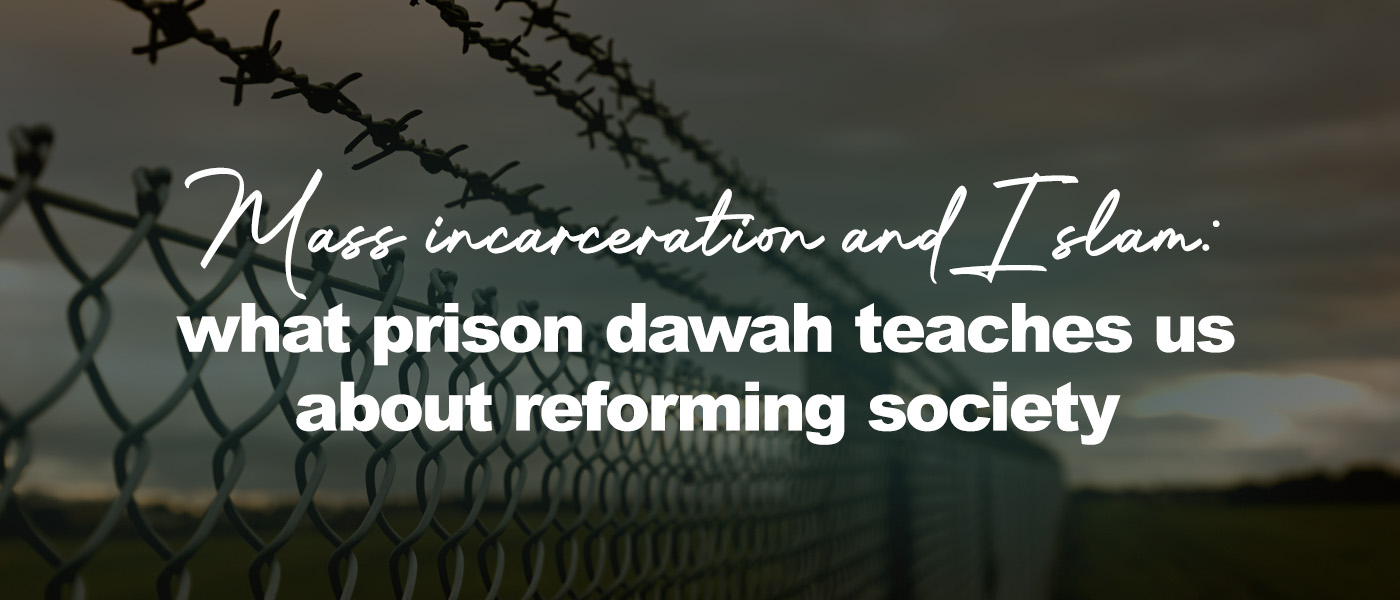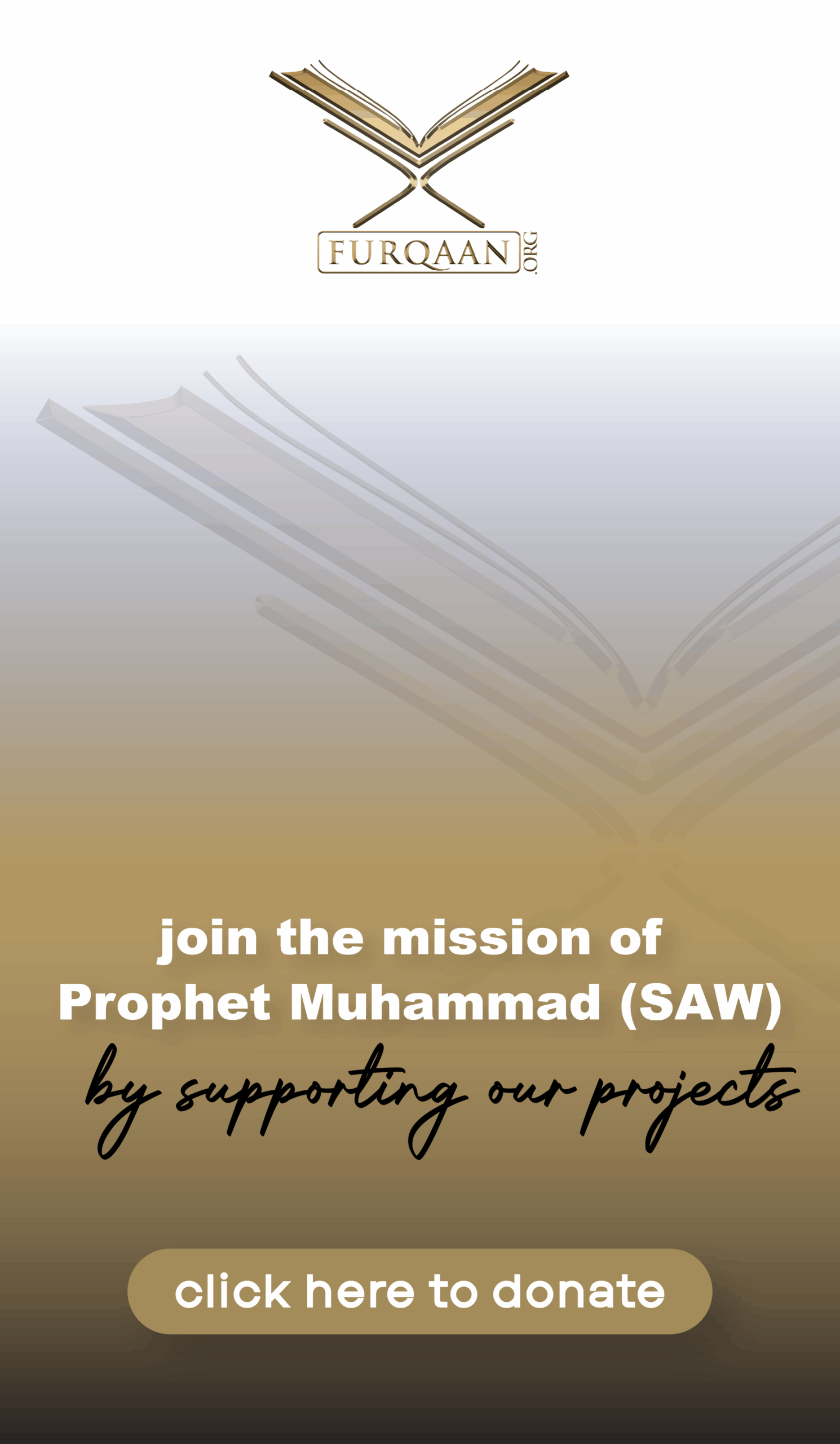
Imagine a young man in a prison cell. He is stripped of freedom, dignity, and routine, and he sits alone with his thoughts. For many, incarceration is a place of despair. Yet, for some, that space becomes fertile ground for spiritual awakening. In the silence of confinement, many turn to The Quran, to reflection, and to repentance. It is here that prison dawah, Islamic outreach, and spiritual care in prison begins to show its transformative power. Mass incarceration is a defining feature of modern justice systems, particularly in the United States. With over two million people currently behind bars, the U.S. maintains the highest incarceration rate in the world, according to a report published by the Prison Policy Initiative called Youth Confinement: The Whole Pie 2025.
In fact, the report further goes on to say that “tens of thousands of children and adolescents are still held under lock and key each day, most in restrictive facilities that look and feel a lot like adult prisons and jails.” The U.S. has imprisoned adolescents at a rate that is more than double the global average, and “many are detained before even having a trial or are accused of only low-level charges. By our estimation, nearly 45% of youth in confinement could likely be safely released today.” To further put these numbers into perspective, approximately seven out of 10 adults held in U.S. prisons have been incarcerated before the age of 19.
The majority of those incarcerated are disproportionately from African-American and Latino communities. Among them, Islam is notably present. According to a 2012 Pew Research Center survey of prison chaplains, chaplains estimated that Muslims comprise about 9% of the prison population in state prisons, which makes this significantly higher than their representation in the general U.S. population. This presence represents a deeper moral and spiritual phenomenon that deserves close attention not only from the local communities, but from the Muslim communities at large. In the report, chaplains observe that “religious switching occurs” frequently in the facilities where they work, and that “Muslims and Protestants were the groups most likely to be seen as growing in followers.” 51% of chaplains say that they have witnessed inmates switching to Islam from other belief systems in their facilities.
In the same research conducted by the Pew Research Center, for those that want to practice their faith in correctional facilities, some resources are approved more frequently than others, if prisons and chaplains allow for the distribution of such religious materials.
- 82% of requests for religious books or texts are approved, while 17% are sometimes approved/sometimes denied.
- 71% of requests for meetings with leaders from inmates’ faiths are approved, while 26% are sometimes approved/sometimes denied.
- 53% are approved to have a special religious diet, while 40% are sometimes approved/sometimes denied.
- 51% of requests for religious items or clothing are approved, while 46% are sometimes approved/sometimes denied.
- 28% of requests for special hairstyles or grooming are approved, while 36% are sometimes approved/sometimes denied.
These statistics are not just administrative data points, they are windows into the everyday barriers that incarcerated Muslims face as they try to live their faith behind bars. They suggest that while Islam is growing inside prisons, this growth often happens in spite of the system, not because of it. Converts who are practicing Muslims within prisons must navigate a complex bureaucratic landscape to gain access to the most basic spiritual tools and yet, despite this, they persist. The determination to seek truth, cultivate faith, and transform spiritually amid systemic neglect is nothing short of remarkable. It points to the depth of Islam’s resonance and the urgent need for Muslim communities on the outside to engage more directly with those inside.
This reality calls for more than sympathy. It calls for a deeper reckoning with the justice system and for a reinvigoration of Islamic social ethics in our public discourse. If incarcerated individuals can find purpose and clarity through Islam while confined, what does that say about the moral bankruptcy of a society that locks them away without the intention to rehabilitate or reconcile? If Islam can grow under such conditions, then surely it has something to teach us, and that is about resilience, about justice, and about what it truly means to be part of an Ummah that serves the oppressed and the forgotten.

Islamic principles and the crisis of incarceration
Islam, as a faith tradition, offers a compelling lens to critique mass incarceration. The concept of adl in Islam is not limited to punitive responses. It includes restorative principles, ethical accountability, and mercy. The Quran says, “As for those who repent, believe, and do good, it is they who will be admitted into Paradise, never being denied any reward.” (The Clear Quran®, 19:60)

A justice system rooted in these principles cannot ignore rehabilitation, human dignity, and repentance. The spiritual principles of Islam emphasize human dignity and the potential for moral transformation. The Quran repeatedly reminds believers that all human beings were created with honor, “Indeed, We have dignified the children of Adam, carried them on land and sea, granted them good and lawful provisions, and privileged them far above many of Our creatures.” (The Clear Quran®, 17:70)

In this framework, those who have erred are not irredeemable, they are capable of repentance and personal reform. The Prophet Muhammad (SAW) has stated, “All the children of Adam are sinners, and the best of sinners are those who repent.” (Tirmidhi)

These teachings stand in stark contrast to the punitive and exclusionary logic of modern incarceration, which often treats inmates as disposable. Islamic legal tradition, historically, also offers alternatives to incarceration. In classical fiqh, imprisonment was not the primary mode of punishment. Restitution, community-based correction, and restorative justice were common mechanisms of redress. This preference for community reconciliation and moral rehabilitation reveals a deeply rooted Islamic skepticism toward isolating individuals from society for extended periods, except in cases where public safety required it.
Moreover, the Islamic ethos requires Muslims to stand against oppression, regardless of whether the victim is Muslim. Incarceration, as practiced in many countries, becomes a tool of structural oppression, disproportionately affecting racial minorities and the poor, perpetuating cycles of poverty, trauma, and disenfranchisement. From an Islamic ethical standpoint, this is not a neutral legal matter but a moral and spiritual crisis. The Prophet (SAW) repeatedly instructed his companions to support the oppressed and stand against injustice, even if it meant speaking the truth to a tyrannical leader. Therefore, engaging in prison reform and advocating for incarcerated populations aligns directly with the Prophetic mandate to pursue justice.
Islam behind bars: Practices, conversion, and moral change
When we speak of prison dawah in practice, we must first grapple with the evidence that Islam is one of the most dynamic religious presences inside prisons, especially in Western nations. The phenomenon of conversion to Islam among incarcerated individuals has drawn sustained attention from sociologists, chaplains, legal scholars, and Muslim communities. In European prisons, for example, a mixed-methods study of Muslim prisoners (279 individuals across England, Switzerland, and France) found that prisons became “sites of intense religious change”, with many inmates converting or deepening religious commitment while confined. Researchers categorized convert types and described how conversion often serves as a moral reset, psychological refuge, or identity reconfiguration.
That study also suggests that conversion is rarely simplistic or immediate; instead, it frequently involves crisis, search for meaning, social influence, emotional support, or some combination of factors. The prison environment, where conventional social roles are stripped away, can magnify existential questions such as Who am I? and What remains if everything else is taken away? For many, Islam offers a coherent system of identity, structure, accountability, community, and the possibility of redemption. In a U.S. context, earlier empirical work has attempted to map the Muslim prison population and its religious dynamics. In Muslims in Prison: A Case Study from Ohio State Prisons, researchers surveyed Muslim inmates in Ohio. They explored the demographics of Muslim prisoners, their patterns of religious behavior, conversion histories, and how adopting Islam affected their adjustment to prison life. The study found that many Muslim inmates view Islamic practices such as praying, reading, and serving the community as stabilizing factors in their daily existence behind bars.
Internationally, research on Muslim women prisoners has also underscored how Islamic practice can serve as a core mechanism of transformation. A study from Malaysia’s penitentiary system found that women who participated in halaqah programs viewed them as essential spaces for moral counseling, social bonding, and emotional healing, helping them shift away from destructive behaviors. Taken together, these bodies of evidence strengthen a nuanced understanding, and that is that Islam is not just present in prisons, but is always evolving, being negotiated, and often embraced under difficult conditions. But the mere presence of Islam in prison does not guarantee transformation. The degree to which spiritual growth translates into better outcomes (lower infractions, fewer returns to prison, healthier reentry) depends on consistent support, access to proper teaching (not radical distortions), post-release continuity, and community reception.
Among the organizations actively engaged in prison dawah, Islam in Prison stands out as a national nonprofit committed to supporting incarcerated Muslims across the United States. This organization addresses the unique spiritual, legal, and logistic challenges faced by Muslims behind bars. Their operations include distributing Quran translations in both English and Spanish, providing prayer rugs, sending Islamic literature and study materials, coordinating Jumu’ah services, and advocating for religious accommodations such as halal meals, spaces for Salah, access to hijab, and making the month of Ramadhan easy to observe within correctional facilities. As of 2025, over 10,000 copies of Islamic literature have been given into the hands of incarcerated Muslims and 8,610 Quran translations have been distributed across 366 prisons. Additionally, the nonprofit receives more than 400 letters from imprisoned Muslims asking for help every single month, and strives to respond to them all.

Challenges, scrutiny, and misconceptions
However, the growth of Islam in prisons has not come without scrutiny. For the last nearly 2.5 decades, prison dawah has been viewed with suspicion, with some policymakers and media outlets raising concerns and questioning Muslim chaplaincy programs. Baseless accusations have made the work of Muslim prison volunteers more difficult, underfunded and, in some cases, has led to the restriction of religious freedoms for Muslim inmates. There is also the issue of institutional gatekeeping. Prisons often make it difficult for religious volunteers to gain access. Bureaucratic red tape, background checks, arbitrary denials, and inconsistent policies can hinder the continuity of dawah efforts. Moreover, there is a significant lack of funding and logistical support. Unlike many Christian prison ministries that benefit from established networks and resources, Muslim programs often rely on underpaid or volunteer labor. The lack of full-time Muslim chaplains also limits access to spiritual care, particularly in smaller or rural facilities.
Another challenge is the post-incarceration experience. Reentry into society is difficult for anyone leaving prison, but especially so for converts who may have no Muslim community to return to. Many mosques are unprepared or unwilling to welcome formerly incarcerated individuals. This lack of community integration often leads to spiritual isolation, economic hardship, and increased risk of recidivism. It also contradicts the Islamic principle of community responsibility which emphasizes that the collective Muslim body has an obligation to care for its vulnerable members.
Despite this, studies continue to show that religion, including Islam, can positively influence inmate behavior and reduce recidivism.
Lessons for broader social reform
The real insight from prison dawah is not just about reducing crime but about how societies understand justice and transformation. In a system where sentences are long, parole is rare, and reentry is hostile, prison dawah becomes one of the few mechanisms of hope and moral alignment. It demonstrates that people change not through punishment alone, but through reflection, community, and guidance. Prison dawah invites a rethinking of justice not just within the prison walls but in society as a whole. If those in confinement can find spiritual clarity and purpose, what is stopping those in freedom from advocating for a more just and merciful society? Muslim communities must expand their vision of social justice beyond charity and start addressing structural harms like over-policing, unjust sentencing, and the lack of reentry support.
Furthermore, mosques and Islamic centers must open their doors to formerly incarcerated Muslims, offering them spiritual, social, and economic reintegration opportunities. Creating mentorship programs, employment pipelines, and supportive housing for returning citizens should be a part of every community’s vision of Islamic justice. There is also a need to link prison dawah with broader criminal justice reform movements. Muslim organizations should work alongside civil rights groups to advocate for sentencing reform, alternatives to incarceration, and the expansion of restorative justice programs. The ethical imperatives of Islam demand that we speak out not only for the rights of Muslim prisoners but for all who are subject to systemic injustice.
From a theological perspective, Muslims are reminded that Allah (SWT) is Ar-Rahman and Al-Ghaffar. If divine mercy is limitless, then human systems must also reflect mercy and forgiveness. An Islamic society cannot claim to uphold divine justice while turning a blind eye to structural cruelty or neglecting the rehabilitation of those who seek forgiveness. As such, prison dawah becomes a test, not just of our compassion for prisoners, but of our commitment to live by the moral vision of Islam in every area of life.
From personal redemption to societal change
Ultimately, prison dawah is a mirror. It shows that Islam remains relevant and powerful even in the most punitive institutions. It also reveals the moral failings of systems that prioritize punishment over healing. For Muslims committed to justice, the stories and struggles of incarcerated brothers and sisters should inspire both compassion and action. Reforming society means listening to those behind bars, learning from their repentance, and pushing for systems that heal rather than harm. The ethics of dawah demand more than spiritual conversion, they require societal transformation. A society guided by Islamic principles must ask: do our laws reflect fairness? Do our systems allow for redemption? Do our communities support those who seek to return from error?
Dua
Oh Allah! Guardian of the oppressed, Most Merciful in this world and the next, we ask You for Your mercy that brings light out of darkness, guides the misguided, and reforms the corrupted.
Oh Allah! Open the doors of hope for the imprisoned, grant them sincere repentance, and guide our hearts to be helpers for them, not helpers in their oppression.
Oh Allah! Make us among those who revive the Sunnah of Our Prophet (SAW) in supporting the oppressed, reviving hearts, and filling the earth with justice and mercy.
Oh Allah! Do not place cruelty in our hearts, nor injustice in our judgements. Make us among those who correct what is wrong, and who illuminate darkness with Your light.
Ameen!


